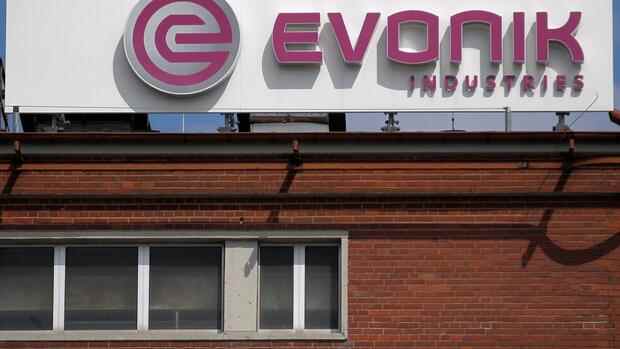new York Despite the pandemic, supply chain problems and high inflation, German companies are optimistic about the American market. This is the result of the latest survey by the German-American Chambers of Commerce and the auditing company KPMG. 87 percent of companies are planning further investments in the USA this year and two-thirds want to hire more employees.
The mood among German companies is better than it has been for a long time. This is due to the still robust economy, the Americans who are keen to buy and the new politics in Washington. Most of the companies surveyed expect their own sales to increase even faster than the expected economic growth of three percent.
“We are currently seeing that the pendulum is swinging from China to the USA,” says Andreas Glunz, responsible for international business at KPMG, which also conducts similar surveys among German companies in China.
While the Germans in China were more worried about regulation and state intervention, they see loosening trade restrictions and new opportunities in the United States, such as in the areas of environmental protection and climate change, explains Glunz. In addition, the profit margins in the USA are also significantly higher than in China.
Top jobs of the day
Find the best jobs now and
be notified by email.
According to the latest study, 93 percent of German companies expect sales to continue growing in the current year – more than twice as many as in the previous year. 88 percent also expect increasing profits for 2022.
Optimism is greater than in Germany
“The results are surprisingly positive,” says Glunz. After all, raw material prices and inflation have risen sharply in the USA as well. Nevertheless, the companies could hold their ground very well. “This means that the German companies were successful in restructuring and digitizing”.
“We have been doing these surveys for many years now. But I can’t remember such a good mood,” says Dietmar Rieg, Managing Director of the German-American Chamber of Commerce in New York.
“The optimism here is much greater than in Germany,” observes Andreas Fibig, CEO of the fragrance and aroma company IFF and board member of the New York Chamber. He also sees a clear improvement compared to previous years and attributes this, among other things, to better transatlantic relations. “The sword of Damocles of additional punitive tariffs is no longer hanging over us,” says Fibig.
An overwhelming majority of German companies want to invest in the USA this year, a fifth even more than ten million dollars. It is often about locating more production in the USA – also to tackle the problems with the supply chains.
Labor shortages: bonuses for factory workers and fewer night shifts
The biggest problem companies name is the labor shortage. Three out of four respondents cite labor shortages as one of their top three challenges. In the previous year, only 45 percent of the companies surveyed complained about this. The reason for this is also the “great resignation”: In the USA, more than four million people are currently resigning from their jobs every month. Many may never come back.
“Today we pay bonuses to factory workers who sign with us. That has never happened before,” reports Crispin Teufel, CEO of the Linde subsidiary Lincare. Lincare also trains its own employees even more.
German companies in the USA are also becoming creative when it comes to working conditions: “Our workforce in the factory no longer wants to work at night. That’s why we sat down and are now working on ways to reduce night shifts,” says Bonnie Tully, the US boss of specialty chemicals manufacturer Evonik, giving an example. “We have to be flexible if we want to keep people.”
Since the murder of African American George Floyd by a white police officer and the subsequent Black Lives Matter protests, Evonik has also been focusing more on diversity. “We have focus groups today for black employees, for women, for veterans,” explains Tully. “It’s been very well received and we didn’t even realize before that there was a need for it.”
Jan Heck, the US head of household appliance manufacturer Miele, also experienced this: “It is important to be inclusive if you want to attract and retain talent”.
Cyber attacks are the order of the day
When asked where most needs to be done, German companies named cybersecurity in second place after the lower dependency on supply chains. “We have attacks almost every day, and working from home has created even more vulnerabilities,” reports Fibig. Computer security is an integral part of work today. The Lincare US boss Teufel also sees many attacks. “The whole healthcare space is under a lot of fire because of patient data,” he observes.
KPMG partner Glunz is convinced that only a tenth of the attacks are known. He sees the greatest risk in attacks on entire production systems. “They’re often the least secure and the easiest to hack,” he explains. Cyber criminals could change the mixing ratio and sabotage entire systems.
More: “There will be a wave of takeovers” – what German companies in the USA must now pay attention to
